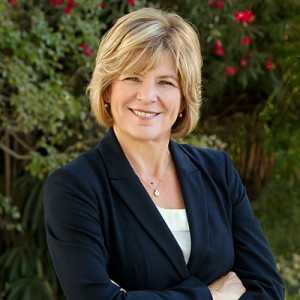Farm Succession Planning Pitfalls
Look around at your farm.? You’ve worked to create, maintain and improve your operation.? What will it become after you’re gone?? Succession planning is not an easy task. To get you on the path to success, consider these four farm succession planning pitfalls.
- Never Getting Started
The biggest mistake farmers can make is not taking the first step ? that is, creating a plan.? For the most part, the skills that may make a farmer successful are not the same ones that make a person eager to plan.? A good starting point is a family meeting.? Family communication is vital to the succession planning process.? All family members who are active in or dependent on the farm should attend.? Spouses, too.? ?An agenda for the meeting and defined goals are helpful.? This first step can help you identify common goals and create a preliminary plan.
- Not Using Available Succession Planning Tools
Farmers have many options and should consider many, if not all, options when creating a succession plan.? Identifying the best business structure for the operation is a good start.? If a farm is a sole proprietorship, the business dies when the owner dies.? Establishing a limited partnership or limited liability company, for example, allows the elder generation to maintain management in the farming operation while gradually transferring ownership and responsibilities to the younger generation.? A trust is also an option to consider.? The well-known benefit of a trust is that it can avoid probate, and the delay, expense and lack of privacy that are part of the probate process.? Another advantage is that a trust can identify a successor trustee to ensure an appropriate manager has the authority to continue the operation.
- Worry About Offending Family Members
Succession planning can be an emotional issue. Even if you are at the top of the family hierarchy, you may be concerned about hurt feelings, disappointments, and misunderstandings.? Avoiding confrontation to keep the family happy is a short-sighted approach.? The result may be that an unqualified child, or children, run the farm.? Many parents want to treat children equally. However, if the bulk of the family wealth is a family owned farm, it may be inappropriate to divide it equally among active and inactive children and allow inactive family members to exercise management decisions.?
- Allow your Plan to Gather Dust
If you beat the odds and establish a plan, give it a reality check at least annually.? Sometimes the plan seems perfect in the beginning, but subsequent events or the passage of time reveals problems.? The plan needs to be adjusted accordingly.? Set a date each year to review it.?
Business succession planning will require you to think about family relationships, and some decisions may be difficult.? An experienced estate planning attorney will be able to help you through the process, provide valuable guidance and make sure your plan will do what you want when it is needed. If finances are tight, start with essential legal documents and term life insurance, then update and upgrade your plan as your financial situation improves.? The most important thing is not to put this off.? Once your plan is in place, you will have peace of mind that your family and farm business will be protected if something should happen to you.
 Paulla?Hyatt-McIntire is a Certified Specialist in Estate Planning, Trust and Probate Law* and provides quality legal counsel for all levels of complexity in estate planning, trust administration, probate, special needs trusts, elder law, and business succession and tax planning. In addition to Paulla’s experience in law, she spent nine years as an elementary and middle school teacher for the Yuba City Unified and Franklin Elementary School Districts. Paulla is married to Brad McIntire, and their family includes daughters Jackie and Katie and son Zach.
Paulla?Hyatt-McIntire is a Certified Specialist in Estate Planning, Trust and Probate Law* and provides quality legal counsel for all levels of complexity in estate planning, trust administration, probate, special needs trusts, elder law, and business succession and tax planning. In addition to Paulla’s experience in law, she spent nine years as an elementary and middle school teacher for the Yuba City Unified and Franklin Elementary School Districts. Paulla is married to Brad McIntire, and their family includes daughters Jackie and Katie and son Zach.
*State Bar of California Board of Legal Specialization
This article appeared in the December 2016?issue of Crop Talk magazine.
